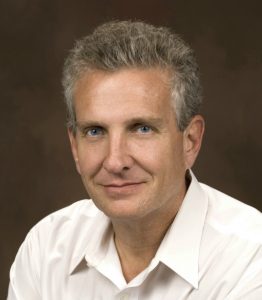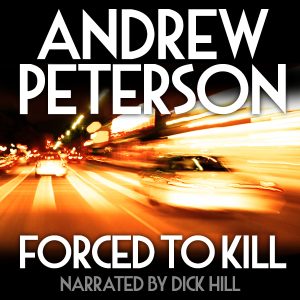By Andrew Peterson
 What makes an engaging thriller hero? Is it bravery? Character? The ability to withstand pressure without breaking? Perhaps it’s all of these and more. When someone buys a thriller, it’s a good bet they aren’t looking for a story that mirrors their own day-to-day doldrums, they’re looking for a larger than life adventure where they can imagine themselves in the hero’s world. An engaging character–male or female–will grab the reader and propel him into the story. In essence, the reader becomes a character in the story and experiences the action and emotion first hand, not as some distant observer, but up close and personal. As authors, we strive for this goal.
What makes an engaging thriller hero? Is it bravery? Character? The ability to withstand pressure without breaking? Perhaps it’s all of these and more. When someone buys a thriller, it’s a good bet they aren’t looking for a story that mirrors their own day-to-day doldrums, they’re looking for a larger than life adventure where they can imagine themselves in the hero’s world. An engaging character–male or female–will grab the reader and propel him into the story. In essence, the reader becomes a character in the story and experiences the action and emotion first hand, not as some distant observer, but up close and personal. As authors, we strive for this goal.
In a really great movie, you don’t notice the direction. In a really great book, you don’t notice the writing. If the author has engaged the reader at a core emotional level, the pages fly by as the reader loses track of time. Story is story. I may not remember every Mitch Rapp or Harry Bosch adventure, but I have a vivid memory of those characters. They almost feel like friends. Its high praise for their creators, Vince Flynn and Michael Connelly.
So what is it about my character that makes him so memorable? Why do people–men and women alike–find Nathan McBride so engaging? I’m not sure I have a definitive answer, but I can share what folks have told me through emails. First, they like how he treats women as equals. Second, they like how he lives by a code of honor. Third, despite his extraordinary skill at what he does, they like how he’s just “one of the guys.” And fourth, Nathan doesn’t take his world for granted. He also doesn’t seek public recognition, nor does he expect it. He doesn’t feel the world owes him anything, just the opposite. He doesn’t object to paying taxes, he’s grateful that he owes taxes in the first place!
As Americans, we often take our luxuries for granted. If we want food, we open our refrigerators, or hit the drive-through, or enjoy a restaurant with friends or loved ones. We have a slew of luxuries at our fingertips. Entertainment. Communication. Housing. You name it, we’ve got it.
Because of his former profession as a Marine Corps scout sniper and CIA operations officer, Nathan’s a traveled man. He’s seen how the majority of people in the world live, and they don’t live like us. Far from it.
People often ask me if I’m writing Nathan McBride from experience and my answer is always the same. “I’m sorry Senator, I have no recollection of that.”. Seriously, I’ve never been a Marine sniper or a CIA operations officer. I write Nathan from the heart, I don’t try to instill characteristics into him I don’t believe in myself. Could I ever be Nathan? Do I have his personality? Could Andrew Peterson ever endure what he endured after he fell into a sadistic interrogators hands? No, absolutely not. Nathan is bigger than life, he has to be.
 People often ask me how he could live such a “normal” life after what he went through. They don’t think he could. I always reference the example of John McCain. Whether you like his politics or not, he’s lived an extraordinary life, becoming a U.S. Senator and even a presidential candidate. Nathan doesn’t dwell in the past, nor does he sweep it under the rug. He maintains the attitude of: it happened, get over it. Easier said than done. In FORCED TO KILL, Nathan has to confront his former interrogator from Nicaragua and quickly realizes he may not be as “over” that dark episode as he thought. He’ll have to face an ugly truth about himself that tests him in a way he’s unprepared for, which raises another characteristic people like about him. He’s flawed. Hopelessly so. He’s aware of his shortcomings and doesn’t beat himself up over small stuff. He doesn’t drown his sorrows in alcohol or drugs, in fact, he doesn’t drink at all–never touches a drop–one characteristic he shares with his creator.
People often ask me how he could live such a “normal” life after what he went through. They don’t think he could. I always reference the example of John McCain. Whether you like his politics or not, he’s lived an extraordinary life, becoming a U.S. Senator and even a presidential candidate. Nathan doesn’t dwell in the past, nor does he sweep it under the rug. He maintains the attitude of: it happened, get over it. Easier said than done. In FORCED TO KILL, Nathan has to confront his former interrogator from Nicaragua and quickly realizes he may not be as “over” that dark episode as he thought. He’ll have to face an ugly truth about himself that tests him in a way he’s unprepared for, which raises another characteristic people like about him. He’s flawed. Hopelessly so. He’s aware of his shortcomings and doesn’t beat himself up over small stuff. He doesn’t drown his sorrows in alcohol or drugs, in fact, he doesn’t drink at all–never touches a drop–one characteristic he shares with his creator.
So what defines a thriller hero? What makes him or her memorable and engaging? Perhaps it’s self-reflection, perhaps something more, but it has to be something that comes from within, where only the truth survives.






